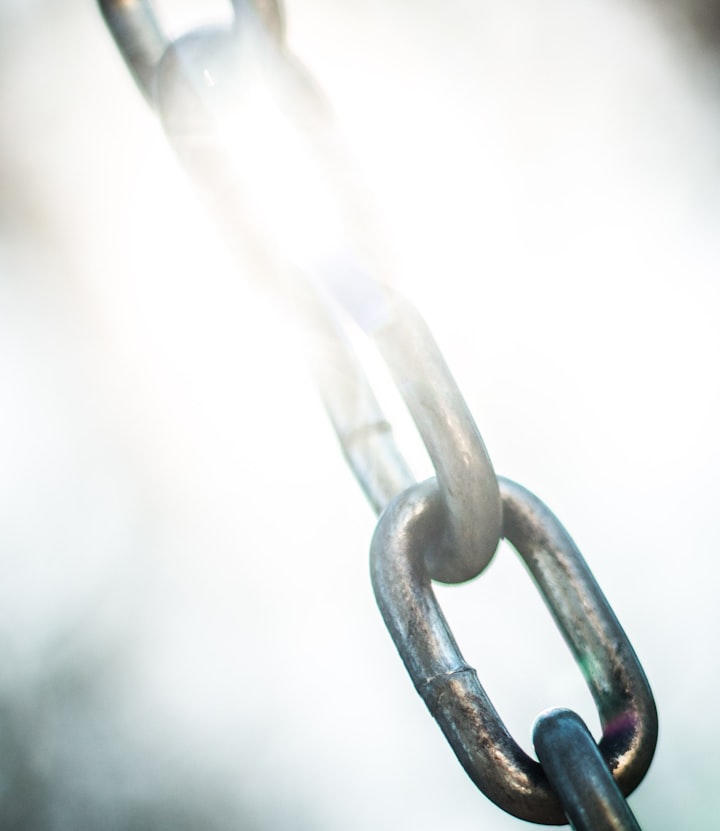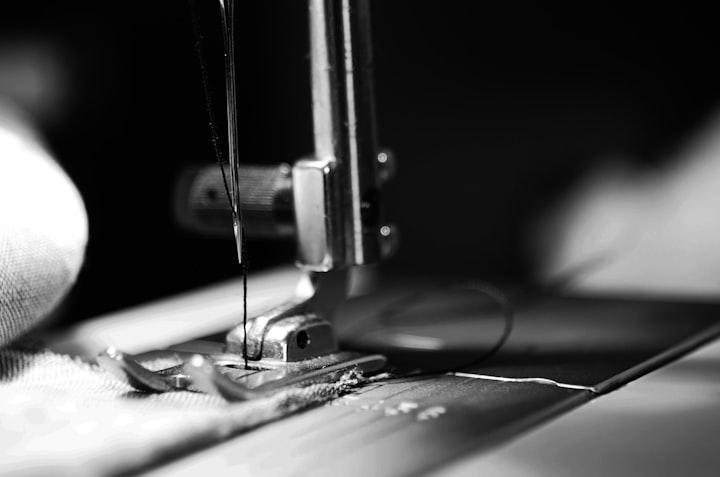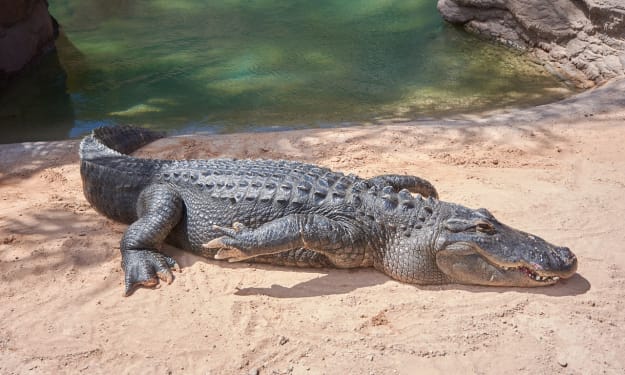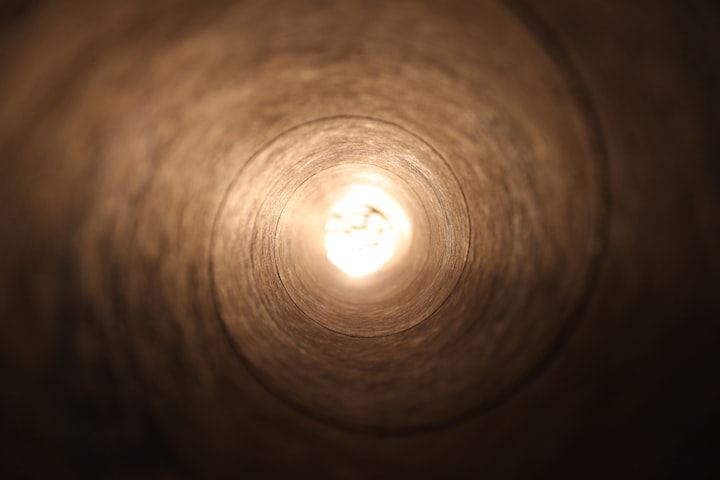The Slave and the Macaw
A story of rainbow-winged hope

Chapter 1 -Landing
Neck in chains. Hands bound. Wrists bloody. Shackled, we were dragged off the ship together. As I was, I caught my first glimpse of those magnificent birds. In that instant, they became flying rainbows of hope that I would be free again.
The scarlet of their wings reminded me of the red in my Mama's favourite Kente Cloth always worn with such pride. The green, of her Krobo bracelet displayed only for special occasions. And the blue, of the waters near my village where I fished as a boy.
In the belly of the beast that transported us from our home, amongst the froth of shit and piss of my fellow men, I dreamt of my Mama. I dreamt of home. One day, I would see them both again.
Chapter 2 – Nesting
From holes, high in the cliffs, the birds swooped and soared above us as we toiled chopping wood for the obroni (white man). Those birds knew, as we did, there was nothing good about what we were doing.
Sometimes they would sit in the canopy and watch, cocking their heads from left to right as their intelligent eyes looked on at the destruction we befell on them for our owners.
And in those first few months, when we were kept caged at night to prevent our escape, those birds fed us. You probably don't believe me, but it's true.
In the depth of the night, when cigar smoke floated across the air from the obroni's huts and the sound of rum-fuelled guffaws mixed with the croak of frogs and the click of insects, those birds brought us food. In pairs, sometimes threes, they would drop nuts, fruits, and seeds through the bars of our cages so that we could eat. Their sharp beaks were capable of cracking even the hardest seeds to feed us. It was like they knew our pain.
I'd arrived in British Honduras in 1814, 17 years old, maybe younger. And, for the first ten years of my captivity, the birds that the obroni called Macaws kept me alive. If nature could create something so majestic, so beautiful, and so intelligent, then I had to believe nature, too, had a purpose for me beyond my captivity.
Chapter 3 – Caged
One bird, in particular, became my friend. He'd introduced himself only a few days after my arrival when one night he'd landed on the wooden bars of my cage. Most of the men around me were asleep, but I saw him. I noticed, as his wings spread silhouetted in the moon's silver shimmer that his right-wing had an ever so slight bend in it. Even in the dark, their colours can't be denied. And in the moonlight of the jungle, the red of his bent wing was even more vivid. It was at that moment he earned his name, Kink.
Macaws can fly. No. I mean, they can really fly. The speed at which they flashed across the canopy as we sawed down trees took my breath away. Despite their large size, they are incredibly agile. Swifter than many of the other smaller birds and when they flew in groups, as they sometimes did, it was a sight to behold - like red lightning dissecting the sky.
Maybe it was because of his wing's deformity, but Kink didn't fly as quickly as the other birds. Some days he barely flew at all. He would, instead, just sit and honk at us from those trees that we weren't cutting.
As time passed, Kink became more inquisitive. He learnt to mimic the sound of our sawing and even the songs we sang to keep the blade moving in time. I was sure he even danced.
I wasn't the only one who had eyes for Kink. Like they did us, the obroni had been caging the Macaws from the moment we arrived. The red of their plumage, like the red of the mahogany wood we cut, and the red of the blood we spilt made the obroni rich. The colours of their greed knew no bounds. Crates of the birds, some living, mostly dead, were put on the boats back to the homeland of the white man every time they set sail with timber.
On a Wednesday in May, in 1823, Kink's curiosity got the better of him. I watched helplessly as one of the obroni threw a net over him and dragged him away. I didn't realise it at the time, but fortunately for us both, Kink wasn't destined for an aviary in some palatial home in London. Instead, he was now, like me, the property of one Colonel James Gressingham. Kink's cage was in the study of one of the country's richest timber producers – a man who'd never chopped a tree with his own hands in his entire life.
Chapter 5 – Mimic
A slave is only of use if you can fulfil the task the obroni demands. Once you can't do what they want, you're obsolete. Simply put, of no economic worth. A slave must, therefore, learn to adapt, especially when your original purpose, cutting down trees, is the labour of a young man. Luckily for me, like the Macaw, I was smart. And also, like the Macaw, I was a good mimic with an ear for voices.
I had quickly learnt the other languages around me. I already knew many of the other men's tribal tongues, and the words of the country's native people were easy to decipher. Still, my ability to understand both the English and the Spanish terms and writings of the competing obroni around me helped me adapt and ultimately leave the brutal labour of cutting trees.
In 1825, I too moved into the home of Colonel James Gressingham as a translator and clerk. Most importantly, though, my new place of work was the same study in which Kink also resided. We were reunited.
Speaking and understanding another's language is 25 per cent learning, 75 per cent impersonation. To talk to Italian, you must inhabit the Italian man and embrace his passion and gesticulate as fervently as he does. To speak French, you must adopt his intellectualism and his laissez-faire attitude – only then will you master the Gallic Shrug. And to talk like the Englishman, you must embody arrogance, truly imagining yourself to be superior to every other man beneath you. Only then will your pomposity pass when you speak English; it is, after all, as an Englishman will always remind you, the language of Shakespeare and the Bible.
"This Negro carries himself like a true Englishman." If I heard that once, I heard it a thousand times. My mimicry of their nature was so good that in some perverse way it endeared me to the obroni who surrounded me. Politely rude, briskly vague, firmly uninformative and socially awkward around any females - my impersonation of an Englishman was pitch perfect.
In the study of Colonel James, when his guests visited, the double act of an English speaking bird and a perfect-English speaking negro never failed to entertain. Ladies would chuckle behind gloved hands, and ruddy-faced fat men would howl when either Kink or I spoke. Unlike Kink, though, I never had the opportunity to ignore or insult. Kink's profanities, which were really the Colonel's, always caused hilarity.
The very fact that such words could come out of something with such colour, whether from the dark chocolate of my skin or the bedazzling spectrum that was Kink, blew the fragile minds of these insipidly plain skinned people. Who knew that when spoken by somebody who wasn't white, the words could become so intoxicating?
Over the next few years, as we aged together, I would regularly perform alongside Kink to amuse the Colonel's guests. By day I would minute meetings, draft letters, write edicts, and by night I would read Shakespeare, Bunyan and Swift. Kink would play his role. His Bottom from A Midsummer's Night Dream was impeccable.
Kink's impersonation of the Colonel was faultless, right down to the puffing out of his chest when he honked his insults. Whatever the Colonel had been muttering about in discontent that week, Kink would pick up and repeat it sporadically, often when least expected.
On one particular sultry morning, while I was drafting letters for the Colonel to send to his customers in England, Kink revealed a secret that would change both our lives.
"Wilberforce can go to hell." Kink howled.
Chapter 6 – Flight
I'd heard the name of William Wilberforce before. But more often than not, only in the hushed whispers of Gressingham and his guests. It was clear to me they didn't want me to know this name.
"Wilberforce will ruin me, ruin me, ruin me." Kink cawed.
I stood up from my desk and walked towards his perch. My beautiful herald continued with his revelations.
"Free the slaves? Free the slaves? Never! Never!" Kink cried out.
Gressingham's fears were exposed bare. Kink, at that moment, had unveiled what the Colonel was scared of most.
In the months, and indeed the years that followed, I did my best to consume every piece of knowledge and information that I could about the man called Wilberforce and his campaign back in England. From the letters sent to the Colonel and in the month-old newspapers that wrapped items and objects sent to him by ship, I devoured what I could about this reformist.
Was it really true? Was there hope? Would I soon be able to call myself a free man again? Could I leave this country and return home to my Mama? Would Mama still be there to see her son?
In the moments when Kink and I were alone in the Colonel's study – not working, not entertaining – I talked endlessly to my brilliant friend about the country of my birth, the people of my blood and the hope I now had. And despite his occasional interruptions, on the whole, he listened dutifully, nodding his head as he did the chain on his leg that secured him jingled.
If I were to be a free man again, then it was only fitting that the bird who had saved me, who'd provided me with hope, whose bright colours reminded me of all the beauty that could exist in the world, would be free too. I would give him freedom - that was my promise to my scarlet friend.
Chapter 7 – Freedom
On the 29th of July, 1833, three days after the British Government guaranteed the passing of the Bill for the Abolition of Slavery, William Wilberforce died.
One month later, the House of Lords passed the Slavery Abolition Act, which abolished slavery in the British Empire from August 1834.
And not so long after that August, but not before Colonel Gressingham had received his compensation for my freedom from the British Government, he called me into his study to give me my papers to say that I was, once again, a free man.
Even at that moment, it was clear to me he still didn't see me as an equal; I am sure he never would, perhaps never could, but he did, at least, respect the law of his Queen and homeland, and for that, I guess I have to be grateful. Many other slaves were not so lucky when their freedom was granted.
Gressingham chose his final words to me carefully.
"Don't believe for one moment that life for you has now got easier," he said. "Indeed, I very much suspect your troubles are only just beginning. Most people believe they want freedom, but all we really want is a fair master. Don't let anybody get the better of you. You're British now, and that makes you better than most." There it was, personified, the arrogance of Englishness I had been able to mimic so well for so many years.
"Do you have anything to say?" Gressingham asked. I was momentarily bewildered. I almost think he expected me to say thank you. But carpe diem, right? I looked at Gressingham, and I looked to Kink.
"Sir, can I take the bird with me?"
I expected the Englishman to laugh in my face, to throw me out, maybe flog me one last time, for old time's sake. But to my surprise, his response was almost magnanimous.
Gressingham smirked. "To the winner goes the spoils. And have you ever won something so beautiful?" I didn't know if he meant Kink or my freedom but both were beautiful, and on that, we could agree.
Without much ceremony, Gressingham opened Kink's cage, unchained him from his perch, and handed me the chain. Kink hopped on to my shoulder, as any good literary Macaw should.
"What do you plan to do with him? I wager a Shakespearian Negro, and a talking bird could make a pretty penny in the theatres of Soho," said the Colonel.
"Maybe, Sir, maybe." And with that, I, and Kink, stepped out of the Colonel's study and out of his life.
********
I, of course, have no plans for such a journey into theatre, nor indeed to London. I have only one place I want to go – home. But before that, I have one promise to keep.
The spot where I now stand is as close as I can remember to where I first saw Kink in the moonlight. The years have aged us both. We aren't the young men we once were. But if it's still there for both of us, I am sure we'll always find our home.
His chain has come off easily. He's free to fly away. We both are. Perhaps, we're both scared. It's true, we don't know what awaits us. Our loved ones may all be gone. But, we both need to find out.
A few things I do know. I am confident the British Empire won't last forever – none ever do. Empires rise when others are exploited. And the British have begun to dismantle their sin. However, I am sure long after the Empire, their pomposity and arrogance will remain, but it will all just be bluster in a breeze.
I pray that all slaves and my people will all, one day, be free. I am sure time will teach me, teach us all, at what price our freedom has come. And whether our liberty will be the same as the obroni's or just another cage. A bigger cage, but nonetheless, a cage. I pray I am wrong.
And finally, I wish that Kink flies away and finds his home. I wish that this beautiful rainbow bird of hope will always fly high in the canopy of his homeland. When I am far from here, I know, I will dream of him and his family flying high, flying fast, flying free.
Kink cocks his head at me as if to say something, but there are no words from either of us anymore. No more mimicry. No more impersonation. He stretches out his wings, a short run, and he launches himself into the air. And he's gone. I think he knew, as I do now, in life, the best thing to be, is free, free as a bird.
About the Creator
Leo Dis Vinci
UK-based creative, filmmaker, artist and writer. 80s' Geek, Star Wars fan and cinephile.






Comments (1)
Well written! Good job!